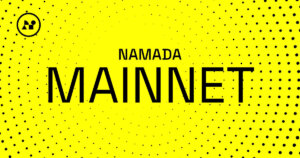 Yearn.finance’s founder and others aren’t bullish on Uniswap’s current governance model
Yearn.finance’s founder and others aren’t bullish on Uniswap’s current governance model Yearn.finance’s founder and others aren’t bullish on Uniswap’s current governance model

Photo by Fred Rivett on Unsplash
Last week, the decentralized exchange Uniswap shocked the crypto world when it released its own token, UNI.
The launch was predicated on fully decentralizing the protocol and putting the control of its direction in the hands of users, as all historical traders on the Ethereum-based application were gifted UNI.
Every historical trader got a baseline distribution of 400 coins and liquidity providers got access to more, with many getting hundreds of thousands of dollars worth of the coin for basically free.
This was fair… right?
Well, not everyone is all too sure. While it’s still early days for Uniswap’s UNI and the decentralized autonomous organization (DAO) where the tokens can be used, many think that there are issues in how Uniswap will be governed due to the high barriers to entry in terms of catalyzing changes in the protocol.
Issues with Uniswap’s governance
Uniswap’s DAO operates on a delegate system where users with over one percent of all UNI (10 million tokens) delegated to them can create proposals, which then are built into the Uniswap platform if confirmed. This is similar to many political systems in the modern world where localities cast their votes for a representative, which then voices the opinions of their constituents in a higher court.
In theory, this should work.
But in reality, many don’t think it will.
Pseudonymous DeFi analyst “Vault Research” recently released a blog on Uniswap governance and its potential decentralization levels. The following conclusion was reached.
“Voter turnouts for Compound and Yearn is lower than 40%, including VCs for COMP. So it is even harder for the community to govern the system. I agree that founder dictatorship is the best for the early-stage projects…. But we should see how it change as time goes by, especially the treasury. If the treasury doesn’t get distributed fairly, the dream of a community-governed-project will be gone.”
This came shortly after Andre Cronje, the founder of DeFi darling Yearn.finance (YFI), attempted to become a delegate with one percent of all UNI delegated to his address.
He failed dramatically, noting that it may be almost impossible for anyone to secure enough UNI in the current environment to materially affect how Uniswap operates.
love this
man is the true master of performance art
if Andre can't get 10m uni delegated, nobody can https://t.co/KsKHoAi4nv
— Su Zhu (@zhusu) September 19, 2020
Solutions?
There are solutions to the issue of high barriers to entry of catalyzing proposals.
Compound has a system where proposals made by smaller users get placed into a secondary queue called “Autonomous Proposals.” As a blog on the matter reads:
“Compound Autonomous Proposals (CAPs) allow anyone with a minimum of 100 COMP to create and deploy an Autonomous Proposal… When a CAP reaches the proposal threshold (currently 100,000 delegated votes), anyone can call the public launchProposal function, which creates a formal governance proposal — and begins the voting process.”
The idea with this is to allow anyone to get a voice and platform. That platform can then be parlayed into a serious proposal if it gains enough traction.
There’s also a system called quadratic voting, promoted by Vitalik Buterin himself. Used by projects like Pickle Finance, the idea is to ensure that a small group of actors do not have full control over the protocol.
As a data science blog explains:
“In Quadratic Voting, each participant is given a number of credits that can be used to vote for an issue. However, the cost of casting more than one vote for an issue is quadratic, not linear. So, the marginal cost of each additional vote is far higher than of the previous vote.”





 CryptoQuant
CryptoQuant 
 CoinGlass
CoinGlass 

























































































